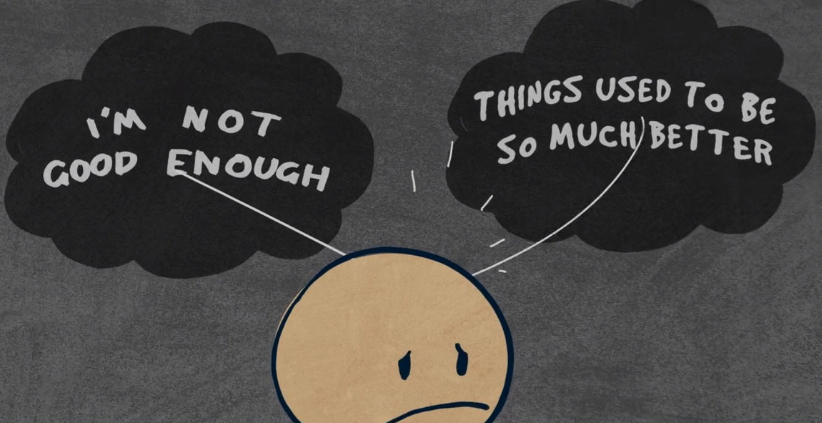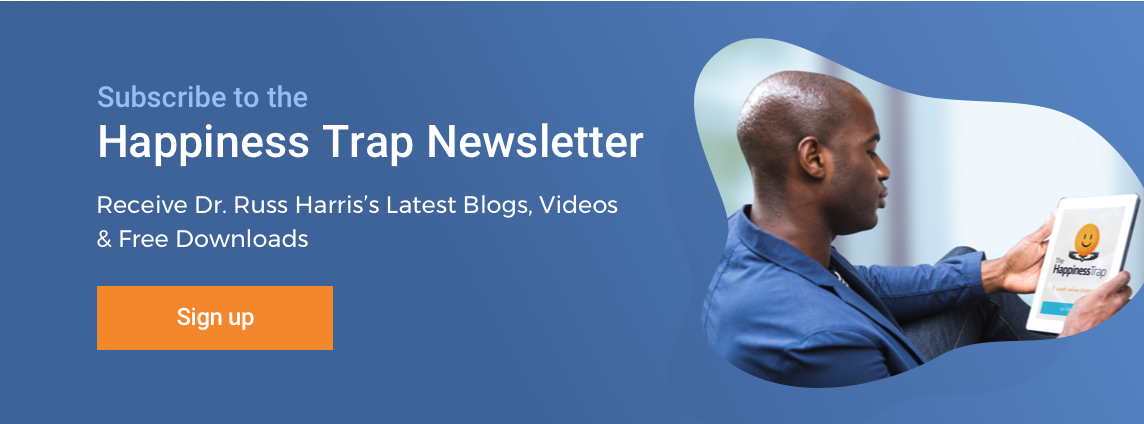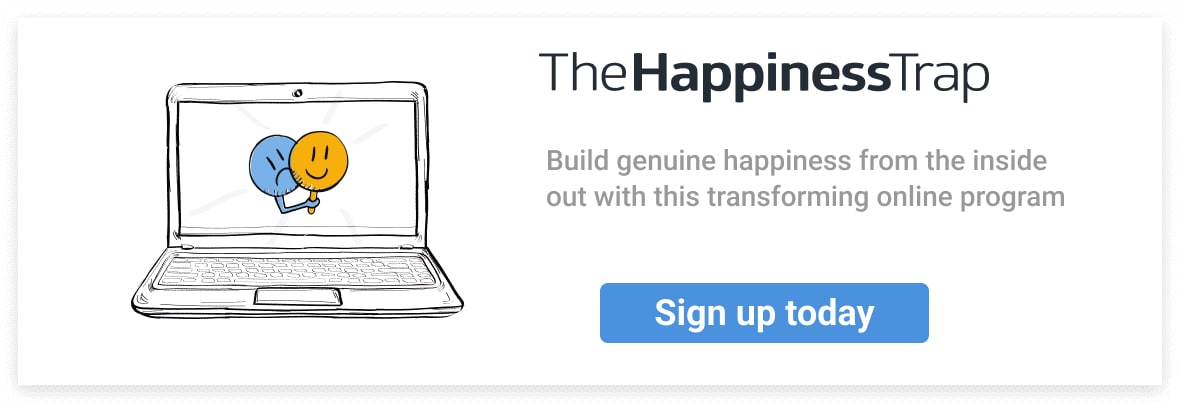In a word: yes!
It’s not hard for most of us to get rid of unwanted thoughts & feelings … as long as they’re relatively mild.
When we’re a little bit anxious, a little bit angry, a little bit sad, it’s usually quite easy to ignore those difficult feelings, or distract ourselves from them, or think positively, or do a relaxation technique – and make ourselves feel better as a result.
But the more intense and painful our difficult thoughts & feelings, the harder it becomes to do this.
For example, if we’re mildly upset about something, and we eat some yummy food, chocolate or chips or ice-cream or whatever it is that tickles your taste buds, most of us will find that the tasty food successfully distracts us from our unpleasant feelings and makes us feel better.
But if we’re EXTREMELY upset about something, and we use this very same distraction strategy, we’re likely to fail; most of us will find we can barely taste that food in our mouth, that there’s little or no real pleasure in it, and it doesn’t help us escape those difficult feelings.
Likewise, if we’re a bit worried or anxious about something that’s not a major threat or a significant risk, then thinking logically and rationally about it, i.e.
- Carefully assessing the facts and calculating the real risks or
- Doing a simple relaxation technique, e.g. some slow breathing
will for most of us rapidly lower our anxiety, help us calm down, and enable us to stop worrying.
But if we’re EXTREMELY anxious about something that truly is a major threat or a very real and significant risk, these types of strategies just won’t work.
Example 1
For example, if you are going into hospital for major surgery for a life-threatening condition, how likely is it that a bit of positive thinking, relaxation, or distraction is going to get rid of your anxiety?
For sure, you may get a bit of short term relief from such methods, but how long would it last before the anxiety returns?
Example 2
For another example, consider: if someone you love very much were dying; could you stop yourself from feeling sad, angry or scared?
For most human beings, there are only two ways you could realistically do this.
- One way, would be to completely numb yourself with drugs or alcohol.
- The other way would be to completely cut off from your own emotions; this is technically called “dissociation”, and usually gives rise to an unpleasant sense of numbness, emptiness or hollowness.
The Take-Home Message
When our problems and challenges are minor, and our painful emotions are mild, it’s often quite easy to avoid, distract, escape from or get rid of unwanted thoughts and feelings.
But the bigger our challenges, and the more intense our emotions, the less our ability to do this.
And that’s why we can all benefit from making the effort to learn mindfulness, acceptance and self-compassion skills.
When we have these skills, we can respond more flexibly to our painful thoughts and feelings.
We can open up and make room for them. Instead of fighting against them, we can make peace with them.
We can let them flow through us without a struggle, allowing them to freely come and stay and go in their own good time.
Of course, such skills don’t come naturally or easily. It takes genuine effort to develop them.
But if we want to invest our precious time and energy in doing the sorts of things that make life meaningful, instead of wasting it in futile struggles with our feelings, then learning these skills is well worth the effort.
The Happiness Trap Online Program
The Happiness Trap Online Program is based on an empirically-supported model known as Acceptance and Commitment Therapy (ACT).
Over a 35 year period, evidence has mounted for ACT’s effectiveness in treating conditions including anxiety, chronic pain, depression, stress, smoking, weight loss and performance enhancement.
The Happiness Trap program teaches highly-effective strategies and interventions based on the ACT model, which can help you manage unhelpful thoughts and feelings and build genuine and lasting happiness.









